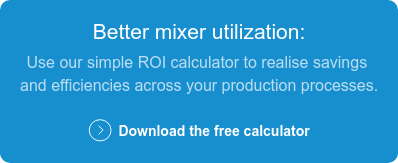As a UK Food Business Operator, you’re responsible for ensuring that food law is complied with in your facility and when labelling your products. Regardless of the complexities in this area of regulation, compliance is a puzzle you need to solve. This quick guide to food standards in sports nutrition manufacture will help you with these responsibilities in easy, need-to-know steps.
The Law Sees Supplements as Food
In the UK, sports nutrition products that complement a normal diet are classed as food supplements. No matter whether they’re tablets, powders, drinks or bars, if they make nutritional and health claims then they’re covered by the Department for Health’s Food Standards Regulations.
As a business in sports nutrition manufacture, you’re responsible for ensuring that you:
- design and construct your premises to the legal requirements
- manufacture food that is safe, traceable and clearly labelled
- have processes in place to enable the withdrawal or recall of unsafe products
- comply with all import and export laws if applicable
Just starting out in sports nutrition manufacturing? Then you’ll need to register your manufacturing premises with your environmental health service at least 28 days before you start production.
Supply and Distribution
Being food-safe means keeping end-to-end records so that you can trace product coming in and going out. You are legally required to keep accessible documents of all your ingredient suppliers and every component of each batch must be traceable. The FSA have detailed information on their website to help you. Sales must also be fully documented so you can identify stockists should there be a problem with any of your product.
Food Hygiene
Safe food is clean food, which places good food hygiene at the heart of your operation. Local authority inspectors will assess your premises, the kinds of food you make or prepare, how you work and your food safety management system. The outcome of their visit is a rating, from one to five, against the Food Hygiene Rating Scheme. Market leaders achieve top marks and promote this on their website.
To achieve a coveted five-star food hygiene rating, purchase manufacturing equipment that guarantees the cleanest food preparation. Seek smooth, stainless-steel surfaces that won’t trap product; designs like this also make cleaning easier and quicker to consistently maintain high levels of hygiene.
Management Systems
Developing a food safety management system is a critical aspect of food production. The government provides an online Hazard Analysis and Critical Control Point (HACCP) tool to help you do this. Follow the steps to identify and restrict any food safety risks at key points during your production process. Then print out your very own food safety management system for your records.
Training
As a business owner, you are required to decide on and deliver the appropriate level of employee training. There are no hard and fast rules but your team must have sufficient knowledge and competence to carry out their roles safely. The National Occupational Standards website provides more guidance around what constitutes reasonable training for food handling and supervisory and management roles.
If you regularly work with foods that contain allergens, free training resources to ensure safe management of these materials can be found at The Institute of Food Research. Or, go above and beyond by buying in or developing a full employee training programme with food hygiene certification.
Allergens
Allergen contamination must be prevented at all costs to protect consumers, reduce the need to dispose of product and protect your bottom line.
Cross-contamination risks can be reduced by selecting quality equipment which has been designed with material control in mind. Sealed, self-contained units that prevent dust from escaping eliminate the risks of cross contamination during manufacturing. Combine this technology with air-tight packaging solutions for a highly controlled end-to end process. Not only will you reduce the chances of contamination but you’ll save on cleaning time and lost revenue by eliminating spilled product.
Labeling
There are 14 allergens you must identify in bold on your labels under EU law:
- gluten
- crustaceans
- eggs
- fish
- peanuts
- soyabeans
- milk
- nuts
- celery
- mustard
- sesame
- sulphur dioxide/sulphites
- lupin
- molluscs
Your product labels must also include:
- the wording ‘food supplement’ not ‘dietary supplement’ and a statement that the product should not be used as a substitute for a varied diet
- the name and address of you as the manufacturer and any packer or importer to the EU if applicable
- recommended daily amount with a warning not to exceed the dose
- storage instructions
- a use by or best before date
- full nutritional declaration with the names and amounts of any vitamins, minerals or other ingredients that form a major part of the product like fatty acids or plant extracts
For full details consult the Food Standards Agency’s Allergen Management Guide.
If you process allergens in your sports nutrition facility, you may wish to advise on the possible presence of allergen cross-contamination using an allergy information panel. This should be located close to your list of ingredients. These panels are not a legal requirement but they do give consumers additional choice and so constitute best practice.
Food standards legislation is a complex area of law that impacts every stage of the manufacturing process. Take some of the pain away by equipping your sports nutrition manufacturing plant with machinery that is designed to minimize food contamination risks.
.webp?width=697&height=418&name=shutterstock_80751271%20(1).webp)
.webp?width=600&height=100&name=SportsNutrition-Engineering%20(2).webp)
